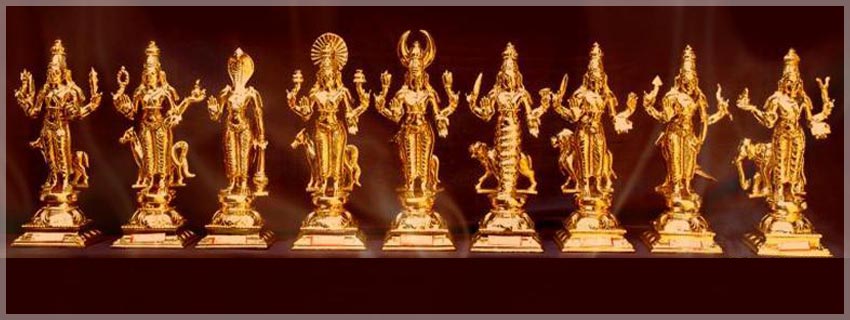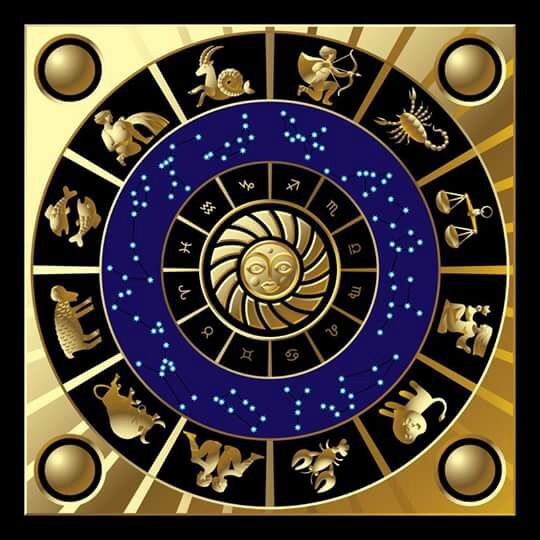














Vedic Astrology is an ancient Indian science which explains planetary motions and positions with respect to time and their effect on humans and other entities on earth. Astrology is the science of the effects of the planets movements on our lives and all things. Astrology is based on astronomy in that astrologers need to know the correct positions of the planets at any given time, as well as the correct positions of the zodiacal fixed star signs in relation to any place on earth at any given time. Once the correct positions of the signs and planets are known, the astrologer then constructs charts representing these positions, and using the astrological science, studies the charts and can make quite a wide range of conclusions about the moment the chart was cast for. Astrology sees mankind as being not only influenced by hereditary factors and the environment, but also by the state of our solar system at the moment of birth. The planets are regarded as basic life-forces, the tools we live by as well as the basis of our very substance. These planetary forces take on different forms, depending on their zodiacal position and on the way they relate to one another. The aspects formed between the planets describe these relationships, the positions of the planets in relation to the place of birth tell us of their expression in the spheres of life depicted by the astrological houses. By interpreting the roles of these players (the planets) and their qualities (the elements, signs and houses) and creating a synthesis, astrology is able to present a complete and comprehensive picture of the person and his potential, based on the natal horoscope.
Astrology is without doubt the original science, the oldest of the sysytems of knowledge devised by human beings. It is the science of fate/destiny used for understanding events happening on earth.
Astrology is not only the foremost of the outer sciences which deal with the nature of the physical universe, it is one of the most important of the inner or spiritual sciences which deal with the mind and soul.
There are a few welI known facts occurring in nature and faIling within the scope of the second division of Astrological knowledge, which would seem to indicate that further investigations along this path would confirm the other findings of the ancient scientists.
Of these natural facts there are three which are outstanding:
 "He excels
in diverse disciplines through dedicated horoscope reading that fulfills a need – we understand
that people need answers that are timely, authentic, and clear. He provide’s answers to clients
in the areas of finance, relationship, career, spirituality, health, business, children/family,
travel and other personal problems too. By getting the the nadi reading or the birth chart
reading done and performing appropriate remedies is a rich and rewarding experience for his
clients."
"He excels
in diverse disciplines through dedicated horoscope reading that fulfills a need – we understand
that people need answers that are timely, authentic, and clear. He provide’s answers to clients
in the areas of finance, relationship, career, spirituality, health, business, children/family,
travel and other personal problems too. By getting the the nadi reading or the birth chart
reading done and performing appropriate remedies is a rich and rewarding experience for his
clients."

According to Vedic Astrology, the planets are relay stations for the reception and
transmission of stellar energies.
In Vedic Astrology, the seven major or visible planets are normally listed in order of the
days they rule: Sun, Mars, Mercury, Jupiter, Venus, Saturn for Sunday, Monday, Tuesday,
Wednesday, Thursday, Friday and Saturday.
Order of Navagraha (Nine Planets)
Of the planets, the Sun and the Moon, as the two luminaries are most important. Next in
importance are Mars, Jupiter and Saturn as the major planets beyond the orbit of the earth.
Then come Venus and Mercury as the major planets within the orbit of Earth and therefore
always close to the Sun.
The Lunar nodes, norh and south, called Rahu and Ketu, regarded as shadowy or secondary
planets, are of yet less imporatance. After them in significance we can place the distant
planets of Uranus, Neptune and Pluto.
Navagraha and the Qualities of Nature
The planets are generally given the three qualities as follows:
| QUALITIES | PLANETS |
|---|---|
| Sattva | Sun, Moon and Jupiter |
| Rajas | Mercury and Venus |
| Tamas | Mars and Saturn (also Rahu and Ketu) |
Elements of the Navagraha(Planets)
The traditional association of elements and planets in Vedic Astrilogy are as follows:
| ELEMENTS | PLANETS |
|---|---|
| Space | Jupiter |
| Air | Saturn and Rahu |
| Fire | Sun, Mars and Ketu |
| Water | Moon and Venus |
| Earth | Mercury |
| NATURE | PLANETS |
|---|---|
| Greater Benefic | Jupiter |
| Lesser Benefic | Venus |
| General Benefic | Moon and Mercury |
| Greater Malefic | Saturn and Rahu |
| Lesser Malefic | Mars and Ketu |
| General Malefic | Sun |
The twelve signs of the Zodiac are divided into twenty seven equal parts, starting from the first
point of Aries. These are called Asterisms. In the Hindu Astrology, they are known as
"Nakshatras". The various planets are much influenced by the position they are placed in the
Asterism.
In the Hindu system of Astrology the asterisms in which the moon is placed at the time of birth
is of great significance. The term "JANMANAKSHATRA" – Asterism of birth, is actually the
position of the moon in the Asterism at the time of birth.
The Asterisms and their longitudal degrees may be tabulated as follows:
| NAKSHTRA |
|---|
| Aswini |
| Bharani |
| Krittika |
| Rohini |
| Mrigashira |
| Ardra |
| Punarvasu |
| Pushya |
| Ashlesha |
| Makha |
| Purva Phalguni |
| Uttara Phalguni |
| Hasta |
| Chitra |
| Swati |
| Vishakha |
| Anuradha |
| Jyeshtha |
| Mula |
| Purva Ashada |
| Uttara Ashada |
| Shravana |
| Dhanistha |
| Shatha Bhishag |
| Purva Bhadrapada |
| Uttara bhadrapada |
| Revati |
The Vimshottari Dasha
The twenty seven nakshatras are divided into three groups of nine nakshatras each. These are
owned by nine planets. Each planet is allocated specific number of years over which it operates.
Vimshottari dasha periods
| S.No | Planet | Nakshatras | Dasha Period(years) |
|---|---|---|---|
| 1 | Sun | 3, 12, 21 | 6 |
| 2 | Moon | 4, 13, 22 | 10 |
| 3 | Mars | 5, 14, 23 | 7 |
| 4 | Rahu | 6,15,24 | 18 |
| 5 | Jupiter | 7,16,25 | 16 |
| 6 | Saturn | 8,17,26 | 19 |
| 7 | Mercury | 9,18,27 | 17 |
| 8 | Ketu | 1,10,19 | 7 |
| 10 | Venus | 2,11,20 | 20 |
| Total number of years | 120 |
The system of Houses & Significance of Houses
There are twelve celestial houses in Astrology and a house is constituted with 30 degrees. They
are derived from an equal division of the circle of observation in to 12 parts. One-twelfth part
of the circle of observation constitutes an astrological house. In astronomy it is the vertical
of the latitude belonging to the place of the birth. The stars on the earth show the place of
birth.
The rising house is called ascendant and the others are known as angular, succedent and cadent
houses. The angles are four cardipoints in the horoscope. The planets in the horoscopic chart
are subservient to lagna, and their original nature undergoes modifications depending upon the
lagna.
Significance of Houses
Significance of Houses
Ignificance
The twelve houses of zodiac represent all the aspects of existence at the terrestrial as well as
individual level. The houses from the lagna to seventh represent the right half of the body of
the native(and the left half of the body of his spouse). Those from the seventh to the lagna
represent his left half and the right half of his spouse.
First House
Body, fame, strength, character, courage, knowledge or lack of it, residence, place of birth,
dignity, honour, ancestry, livelihood, the present wisdom, wealth, comforts and discomforts,
self-respect, peace of mind, happiness and un-happiness, detachment, virtues and vices, health
of parents.
In medical astrology : Body in general, limbs, complexion, marks or moles on the body, sound and
unsound health, skin texture, longevity, sleep, head, brain, texture of hair, stamina.
Second House
Wealth, speech, physical enjoyments, trading in ornaments, pearls and diamonds, buying or
selling in general, accumulation of wealth, earning through self-effort, acquisitions from
father, truthfulness and falsehood, inclinations, food, taste, clothes, eloquence, humility,
steadiness of mind, learning education, letters, anger, deceitfulness, family members, friends,
enemies, servants, close followers, self-control, death.
In medical astrology : Face, teeth, tongue, oral cavity, nose, nails, speech, eyes(right eye).
Third House
Courage and valour, physical fitness, hobbies, talent, education, good qualities, siblings,
longevity of parents, tolerance, capability, quality and nature of food, selfishness, sports,
fights, refuge, trading, dreams. Sorrows, stability of mind, neighborhood, near relations,
friends, army, inheritance, ornaments, cleverness, short journeys.
In medical astrology : Ears(right ear), neck, throat, shoulders, bones, upper limbs, mental
instability, physical growth, and longevity.
Fourth House
Near and dear ones, caste and ancestry, mother, relatives on mother�s side, lands and houses,
agriculture, farming, gardens, orchards, installations, buildings, parliament favours from the
ruler, medicine, education, knowledge of land and geography, hidden treasures, comforts and
discomforts, courage, faith, victory and defeat, perfumes, clothes, milk, digging, agricultural
produce, vehicles, possession of cattle, horses and elephants.
In medical astrology: Chest, lungs, heart, breast, potent, medicine.
Fifth House
Progeny, father, mental ability, learning, knowledge, scholarship, character, conception,
prosperity, acquisitions through wife, fascination (for women), sharp, wisdom, discrimination
and analytical skill, capability, devotion to gods, means of earning, official seal, good or bad
memory, speculation, humiliation, authorship, shruti(Vedas), Smitri, knowledge of mantras,
karmas of past lives.
In medical astrology: Heart, upper abdomen, liver, gall bladder, mind, mental illness,
problems related to pregnancy.
Sixth House
Enemies, oppositions, mental agitation, injuries, accident, disease, wounds sustained in war,
loans, debts, losses, disappointments, obstacles, poisions, slanders, humiliation, cruelty,
indulgence in prohibited acts, theft, quarrels, imprisonment, maternal uncles, maternal aunt,
step-mother, pets, cattle, flavours of food, servants, subordinates, nuisances in general.
In medical astrology: Intestines, umbilical region, phlegmatic illness, tuberculosis, eye
disease, poisoning, accidents, operations.
Seventh House
Spouse, sex partner, marriage, adultery, lust or passion, nature or character of spouse, sexual
union, secret love affairs, journey, deviation from ones path, partnership in business, overt
enemies, quarrels, theft, loss of memory, recovery of lost wealth, progress, attainment of
status, grandfather, brother�s son death.
In medical astrology: Lower urinary tract, anal canal, semen, seminal vesicle, urethra,
prostrate, sexual act.
Eighth House
Marital Status of the woman, longevity, death, obstacle, disgrace, defeat, discontinuity,
suddenness, unexpectedness, misery, loss of memory, sin, killing a living being, capital
punishment, nature of death, place of death, wickedness, father�s indebtedness, deviation from
unexpected norms, frightful place, difficult route, crevices, finding faults, humiliation,
wife�s wealth, sudden unexpected gain, hidden talents, spiritual pursuits and attainments,
inheritance, son of the elder sister.
In medical astrology: External genitalia, incurable or chronic disease, loss of limb,
longevity, cause of death, severe mental anguish.
Ninth House
Virtuous deeds, pilgrimages, worship, religious inclination, devotional and religious learning,
karmas of the present birth, splendour, association with virtuous, auspiciousness, the preceptor
or guru, father, austerity, penance, charity, kindness, wisdom, knowledge, devotion towards the
preceptor, spiritual initiation, mental quietude, fame and fortune, progeny, temples, vedic
rituals, long journeys, travel by sea.
In medical astrology: Hips, thighs, nourishment.
Tenth House
Profession, function, source of livelihood, governmental service, honour from the king,
business, status, wealth, political power, fame, progress, nature of work, professional
inclination, the treating physician, hidden treasure, prescribed course, teaching capability,
self-control, dominance, sacrificing nature, proficiency, father�s wealth and well-being,
foreign travel, financial status, place of residence, performance of sacred and religious deeds.
In medical astrology: knee joint, knee cap.
Eleventh house
Gains of all the nature, income, acquisition, fulfillment of desires, nature of earning,
arrival, rewards, recognition, favours from ruler, special status, proficiency, learning,
ancestral property, fondness for the precious stones, lost wealth, pursuit of pious and
religious deeds, profits and returns, elder brother, paternal uncle, longevity of the mother,
material enjoyments.
In medical astrology: Legs, left ear, left upper limb, recovery from disease.
Twelfth House
Expenditure, loss of wealth, spending money for prescribed or prohibited pursuits, pleasures of
the bed, bedroom, mental anguish, loss of sleep, physical disease, wickedness, penury, loss or
disease of a limb, loss of authority, imprisonment, confinement in an enemy�s house, loss of
spouse, exit from world, emancipation, renunciation, distant travel, foreign land, emigration,
loss in travel, paternal property, spiritual learning, secret learning, fear from overt and
covert enemies.
In medical astrology: Sleep disorders, mental imbalance, hospitalisation, feet, left eye,
death.
As we have seen, the birth chart reflects what circumstances in this life we can expect to
experience. According to the Vedic Astrology, these effects are a result of past actions,
actions in previous lifetimes.
Our time and place of birth is not random, it precisely specifies a birth chart for us,
delivering the results of our past actions through the quality of Natural Law at the time of
birth. The act of birth imprints these laws in our physiology and the environment we are born
in. The planetary positions are merely convenient indicators of those laws, accurate instruments
to measure, calculate and interpret these laws.
The interpretation of the birth chart is merely a reflection of our stage of evolution at the
time of our birth; it does not limit us in any way to grow and improve upon it.
Even though the analysis includes a lifetime of dashas and transits, one should realize that all
of that remains relative to the evolutionary state at the time of birth. Past actions are the
result of past choices. When people become aware of choices that they no longer wish to keep,
they can change their life by starting to choose differently.
New choices will start creating new responses, which will gradually change our circumstances.
Reactions and responses from past actions take time to manifest, and remove those karmas.
Remedial measures are things we can do to help correct or neutralize the undesired results of
past actions. There are different types of remedial measures.
